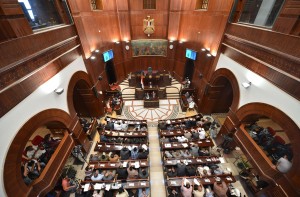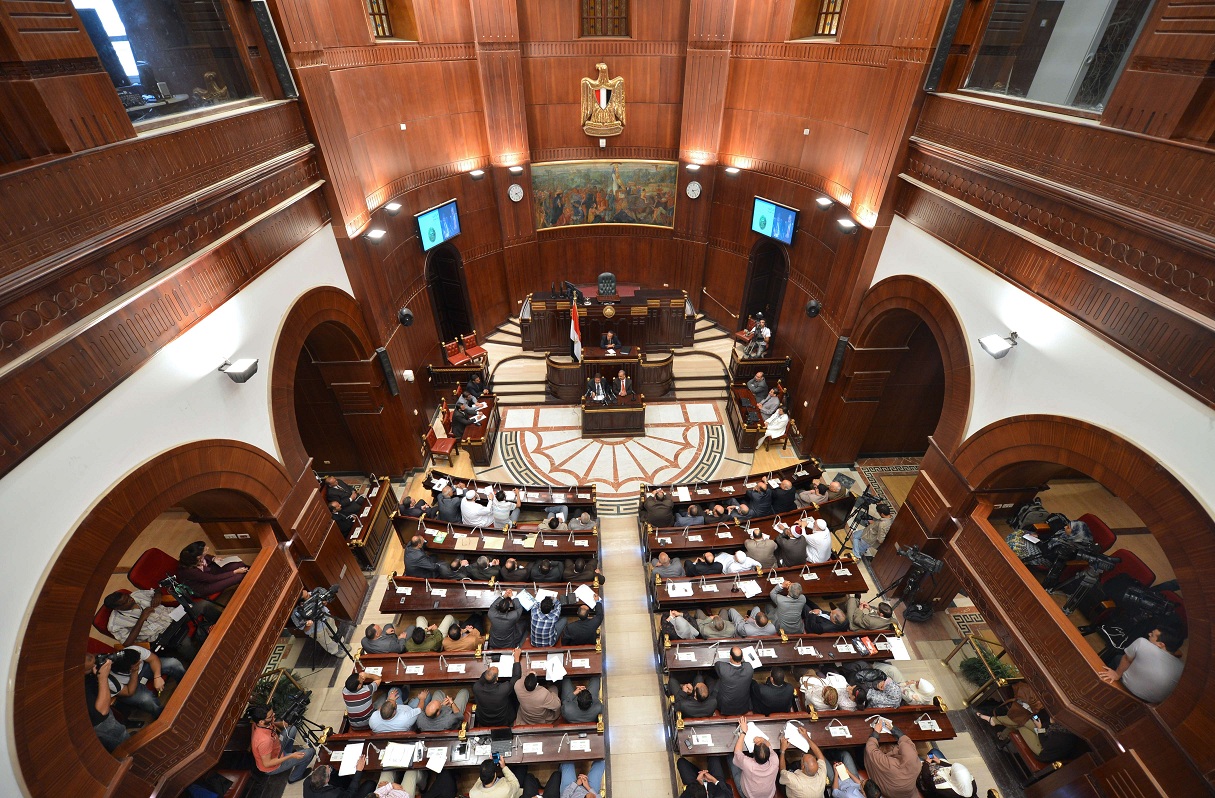
AFP PHOTO / KHALED DESOUKI
A group of 20 political parties and movements are determined to continue applying pressure on the Constituent Assembly because they feel it does not represent all Egyptians. The coalition announced in a statement on Saturday that it would stage a sit-in on Friday 12 October in Tahrir Square, under the slogan “The constitution, social justice, and national unity.”
“After nearly 19 months since the start of the Revolution, the final outcome reveals that the results achieved on the ground are far from Egyptians’ aspirations and their hopes of freedom and justice” the statement read. “The old regime did not fall, only some of its symbols. Its tyranny and corruption still stand.”
The statement goes on to describe a worsening of social justice and unfulfilled promises, as well as disappointment in the highly touted, Muslim Brotherhood organised, Renaissance Project, and that cornerstone of President Mohamed Morsy’s election campaign, his 100 Days project.
The statement also blamed the Egyptian government and its Islamist president for the deterioration of security in the Sinai and the intimidation and displacement of Christians in the country. The parties also criticised the government for not heeding the calls of numerous labour protests, including those staged by teachers and doctors in recent weeks.
“In the face of this grave situation, the signatories of this statement call on the Egyptian masses in Cairo and the governorates to take to the streets and squares on 12 October 2012 to once again state that the revolution continues and that our people will not give up its determination to reach its objectives in full and not give up its basic just demands.”
The group then proceeded to list the causes it pledges to represent on Friday. Firstly, the coalition called for a constitution that “reflects all Egyptians,” calling for the dissolution of the current Constituent Assembly, and replacing it with a more representative one. Secondly the group demanded that those arrested during the revolution be released, and those civilians tried in military trials be retried in civilian courts, also calling for the release of the 8 April officers.
The statement mandated the prosecution of those responsible for the killing, torture, and injury of protesters beginning from 25 January and demanded the retrial of former regime officials.
The group also called for the reforming of state institutions, especially security apparatuses, in order to do away with “corrupt elements.”
Other demands included the securing of Sinai, which has experienced instability, requesting that the government “impose full national sovereignty” over the region.
The Saturday statement also outlined economic demands. The group demanded that the minimum wage be lifted to EGP 1,500 per month and the imposition of a maximum wage no more than 15 times that amount.
It also called for the freedom of independent unions and for the government to take real steps in retaining assets that had been smuggled abroad by former regime officials. The group also rejected a fiscal policy relying on foreign loans, instead insisting that the country could look elsewhere for funds to aid economic recovery.
Signatories of the statement included the National Association for Change, the Revolutionary Democratic Coalition (a coalition of nine leftist groups), the Popular Egyptian Front, Al-Dostor Party, the Egyptian Social Democratic Party, the 6 April Movement (Democratic Front), the Revolutionary Youth Union, the Free Front for Peaceful Change, the Coalition of Women’s Organisations, the Creative Egyptian Front, the Alliance of Revolutionary Forces, and the National Committee for the Defence of the Freedom of Expression.
The signatories stated that the invitation to participate is open to all other political parties and movements.
Many of the statement’s signatories have already participated in demonstrations under similar causes, but the joint protest on Friday represents the first such broad consensus for unified action against the Constituent Assembly, and many of the other demands.
On 4 October many parties called for a protest against the proposed Article 36 of the constitution, which claims equality for women “without prejudice to the provisions of Islamic Shari’a.”
A few days after its formation, the Revolutionary Democratic Coalition, under the leadership of labour activist Kamal Khalil, marched in downtown Cairo in late September under similar demands, accusing Morsy’s government of not delivering on the demands of the revolution and failing to put an emphasis on social justice.
Many politicians and parties have accused Islamists of controlling and dominating the drafting of the constitution in the Constituent Assembly, with some liberal members of the assembly withdrawing, citing inability to overcome the groups Islamist factions.

